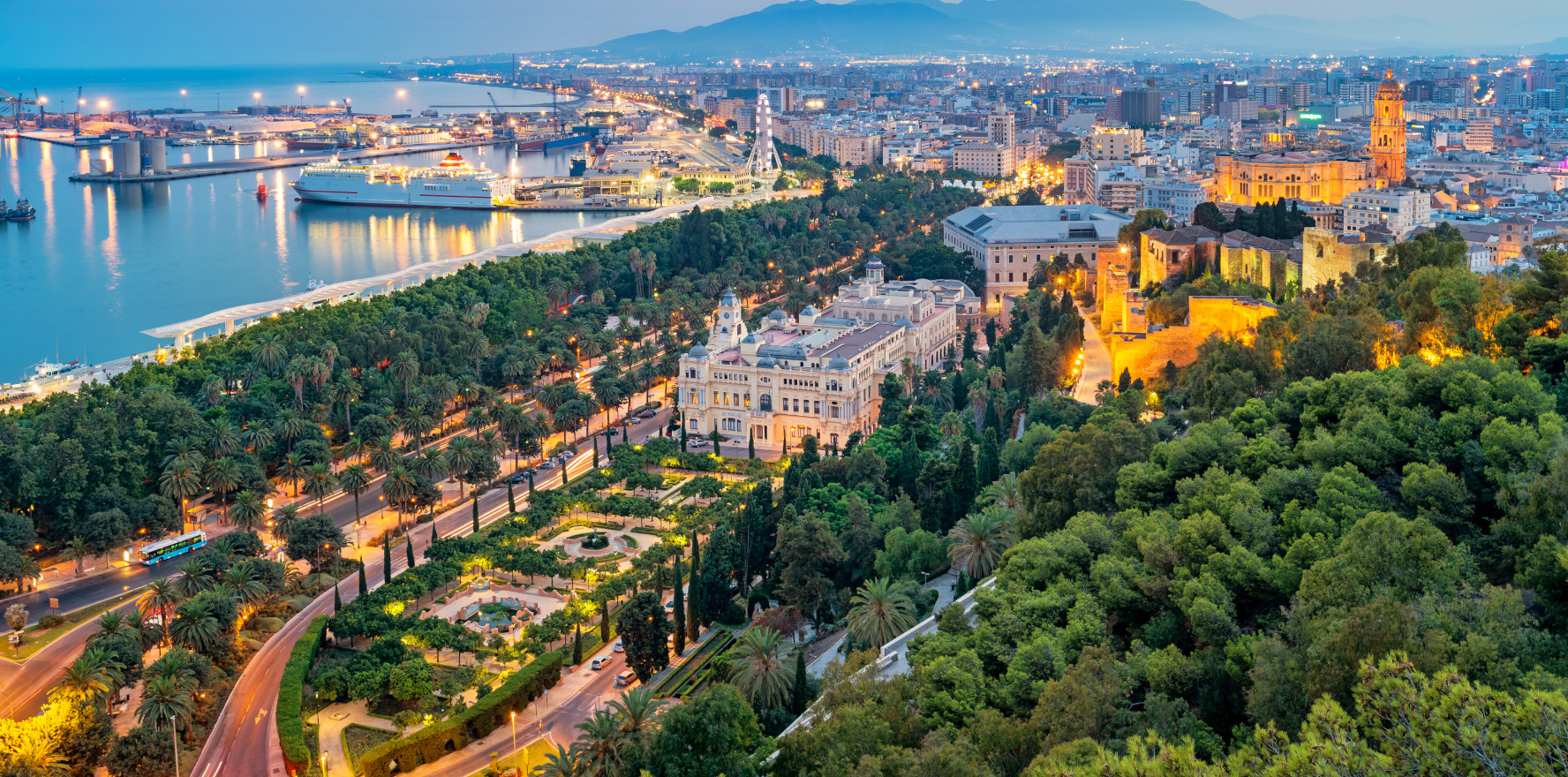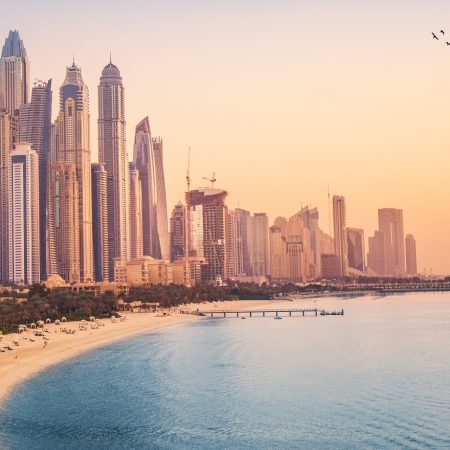While a laptop beneath a palm tree has become the image of the digital nomad, the natural habitat of the executive nomad – a similar creature but in a senior position or a business owner – is well connected locations.
So, it’s no surprise that global cities take the top five places in the latest Savills Executive Nomad Index, which ranks the world’s 20 most desirable destinations for this tier of peripatetic exec. Beaches play a part, given many of these urban locations are coastal, but it’s the vibrancy, culture and networking opportunities offered by cities that attract high-ranking executives able to work remotely.
If “digital nomad” brings to mind footloose young backpackers, their more business-oriented cousins are usually wealthier and quite often have children in tow. Hence high-quality schooling is part of the equation.
The executive nomad is by no means a homogenous breed, but they share the trait of having reassessed their priorities since the pandemic and found the answer lies in easy-to-access locations that offer an attractive climate, quality of life and super-fast Wi-Fi. Connectivity, both physical and digital, is essential.
The availability and affordability of prime rental property is also key. Testament to the popularity of these destinations are rising rental costs; in Dubai prime residential rents grew by 5.4% in the first half of 2023. In Lisbon they rose by 13.9% over the same period.
And, of course, digital nomad visas help facilitate this lifestyle. Ever since Estonia launched its digital nomad visa in 2020, a raft of countries have followed suit to compete for global talent.
The launch of Spain’s digital nomad visa in 2022 has undoubtedly helped propel Málaga – which didn’t appear at all in last year’s Index – into second place this year. The city’s attractive climate, beaches, culture and gastronomy are big plus-points, but so too is its comparatively affordable rental market; costs are half those of its European competitors in the index. Málaga’s international airport is just a short distance from the city centre, a further boon for executive nomads who rely on regular travel. A direct flight from New York to Málaga launched this year.
Dubai, however, claims the top spot, precipitated by its drive to become a leading digital economy. With exceptional digital and physical connectivity – the latter offered by its Dubai airport hub – it also scores highly for quality of life.
Interestingly, no Asian locations make our Index; remote working holds relatively less appeal in the region’s office culture. Meanwhile, Miami is the only US city to chart. Its proximity to the Caribbean means it’s part of a wider net of nomad hubs – including the Cayman Islands, a newcomer to the Index in 2023 – with particular appeal for North Americans.
Established leisure destinations also make the cut, including the Algarve and Tuscany. For a certain niche of nomad, freedom has been found in turning their holiday villa into a year-round home. In the likes of Málaga or Palma, some find the perfect combination of a holiday destination that has a real, year-round city buzz – with palm trees and beaches, too.
Savills Executive Nomad Index
We analysed 20 destinations based on their appeal and ease of access for long-term remote workers. They have then been ranked for their connectivity, climate, prime residential rental market and quality of life.
Source: Savills Research
Dubai
Executive Nomad Index rank: 1
Dubai’s fast-growing fintech and financial services sectors – along with a tax-free environment and high quality of life – are proving powerful magnets for executive nomads seeking a new challenge.
“Many have been impacted by layoffs across global tech firms,” says Swapnil Pillai, Savills Middle East associate director of research. “They are exploring the city as a base to support these thriving sectors.”
Most are Dinkies (Dual Income, No Kids), observes Pillai, and they favour high-end residential buildings in Downtown Dubai, close to the financial hub (DIFC), or in Dubai Marina for proximity to Media City and Internet City.
“Most of the city’s co-working spaces are operating at near 100 per cent occupancy, which supports Dubai’s ranking as a top destination for executive nomads,” Pillai says.
Dubai also scores highly on both types of connectivity. Dubai International, its main airport, is now the world’s busiest for international passenger traffic. Meanwhile, Dubai’s investment in its digital infrastructure – with the UAE now home to the fastest mobile internet speeds in the world – has pushed the Emirate into our top spot for executive nomads.
Málaga
Executive Nomad Index rank: 2
The Andalucian economic capital has in recent years been upping the ante as a major cultural and tourist destination, known for its superlative museums and beautiful old town. Now high-profile corporate arrivals such as Google have given Málaga the seal of approval in a different sphere.
“These companies are all saying that Málaga is the place to be and its reputation then spreads by word of mouth,” says José Felix Perez-Peña, Savills head of Andalucía.
Restaurants, renting and socialising in Málaga are still cheap compared with other major European cities, and people feel “safe” there, says Perez-Peña.
Where the wealthy have traditionally gravitated to large villas on the east side, the west is the new focus of regeneration and landmark developments. These include Sierra Blanca Tower, whose prices have set a new benchmark for Málaga at around €10,000 per square metre ($1,000 per square foot).
Typical prime residential rents are €15-€22 per square metre ($1.50 to $2.20 per square foot), but there is a lack of stock to meet demand.
“Executive nomads want everything ready when they move in, including furniture and internet connection,” says Perez-Peña. “We’re seeing lots of new companies now catering to this market, but there aren’t enough properties available.”
He adds that there is also a shortage of high-quality office space and co-working spaces. “We haven’t been building enough to meet demand.”
Miami
Executive Nomad Index rank: 3
Sunshine, low tax and a fine line in magnificent beaches have long made Miami a go-to staple for Americans seeking a better quality of life. The current influx of executive nomads includes émigrés from financial companies in New York and Chicago.
“This affluent demographic has driven demand for luxury property to its highest levels and made the search for private schools more challenging for those moving here with families,” says Cyril Bijaoui, broker associate at Corcoran.
They like areas such as Miami Beach, Coconut Grove, Coral Gables and Key Biscayne and prefer single family homes over condos. Those looking to rent prior to buying will find price rises have now calmed slightly, after a period of rapid inflation in addition to very high demand and short supply, Bijaoui notes.
However, around half of executive nomads – many of whom are thinking long-term and have signed 10-year-plus commercial leases for office space or bought commercial properties – buy a home.
“They generally prefer not to waste money on rent,” says Bijaoui. “They are accustomed to owning and not afraid to resell and move.”
Abu Dhabi
Executive Nomad Index rank: 4
A new entry in the Savills Executive Nomad Index this year, Abu Dhabi isn’t trying to copy its neighbouring Emirate, believes Stephen Forbes, Savills head of Abu Dhabi.
“Abu Dhabi has become far more outward-looking in the last two years and there is so much on offer now, including Yas Island, a huge leisure destination, and Saadiyat Island, where you have the Louvre and the Guggenheim, which is due to open in 2025,” he says.
The Emirate is proving particularly popular with Northern European executive nomads. A remote working visa is available, and for those making a longer term commitment golden visas are designed to attract property investors and global talent in the creative industries, financial services and start-ups.
“Abu Dhabi’s Free Zones, which offer various incentives to companies, make the city far more attractive to corporate entities now, too,” says Forbes. “Demand for Grade A office space in our Central Business District has never been higher.”
Foreign nationals can only buy property in designated areas, including Saadiyat, Yas and Al Reem islands, and Raha Beach. Rental apartments in new developments cost from around 120,000-200,000 AED ($33,000-$54,000) per annum for a one-bed apartment.
World-class healthcare ticks a further box for executive nomads – and there is an ever-growing range of cool, indoor leisure and entertainment options to escape the intense summer heat.



